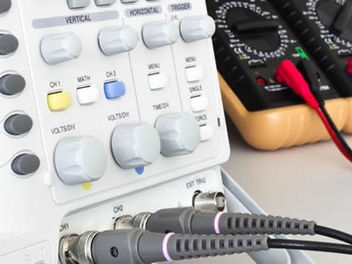Landlords! Are you ready for the new Electrical Safety Standards?
- Graham Harbud
- May 24, 2020
- 3 min read
The new electrical safety standards for private rental properties are expected to come into force on July 1st, which is by no surprise as this has been in the pipeline for a while now!
The guidance has now been issued in preparation for the 1st of July.
What are the new electrical safety standards?
Currently, landlords are obligated to keep the electrics in their properties in good working order, but there are no hard and fast rules about exactly how and when they do this.
After July 1 this is likely to change. Every fixed electrical installation in a rental property will need to be inspected and tested by a qualified electrician every five years.
This inspection process will generate what’s called an Electrical Installation Condition Report (EICR). Get used to hearing this acronym. As a landlord, you’ll be required to give each tenant a copy of the property’s EICR at the beginning of a tenancy.
Your local authority will also have the right to ask to see a copy of the EICR – a request you must comply with within seven days. And letting agents won’t be able to move people into your property unless you can provide them with one too.
What if an inspection reveals a problem?
Any issue must be remedied within 28 days – or sooner if it’s a more serious fault. The work needs to be done by a qualified person, and you need the paperwork to prove it’s been done to a high standard.
What if a landlord fails to comply with the electrical safety standard?
Breach these new regulations, and you could be hit with a fine of up to £30,000. It’s also worth noting that local authorities will have the power to carry out repair works themselves – and then pass the costs, along with a hefty fine, onto the landlord.
If you don’t feel comfortable overseeing this process yourself, we can provide you with the right advice and numbers for good electricians to make sure you stay on the right side of the law.
When does it come into place?
The new rules are expected to come into effect on July 1, 2020. Any new tenancy or renewal after this date will require an electrical inspection and report (EICR).
For pre-existing tenancies, you have until April 1, 2021, to get an EICR.
What happens once the test has taken place?
Following the inspection and testing, a private landlord must -
A) Obtain a report from the person conducting that inspection and test, which gives the results of the inspection and test and the date of the next inspection and test;
B) Supply a copy of that report to each existing tenant of the residential premises within 28 days of the inspection and test;
C) Supply a copy of that report to the local housing authority within 7 days of receiving a request in writing for it from that authority;
D) Retain a copy of that report until the next inspection and test is due and supply a copy to the person carrying out the next inspection and test;
E) Supply a copy of the most recent report to -
i. any new tenant of the specified tenancy to which the report relates before that tenant occupies those premises; and
ii. any prospective tenant within 28 days of receiving a request in writing for it from that prospective tenant
If you would like a quote to carry out this service then please visit out Quote Generator for an instant price. www.global-compliance.co.uk/quote























Comments